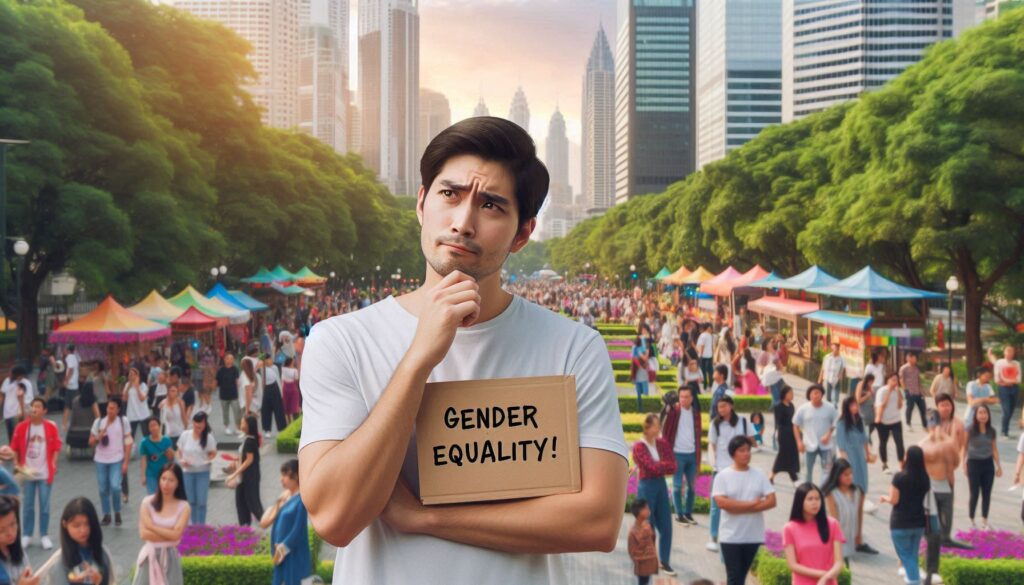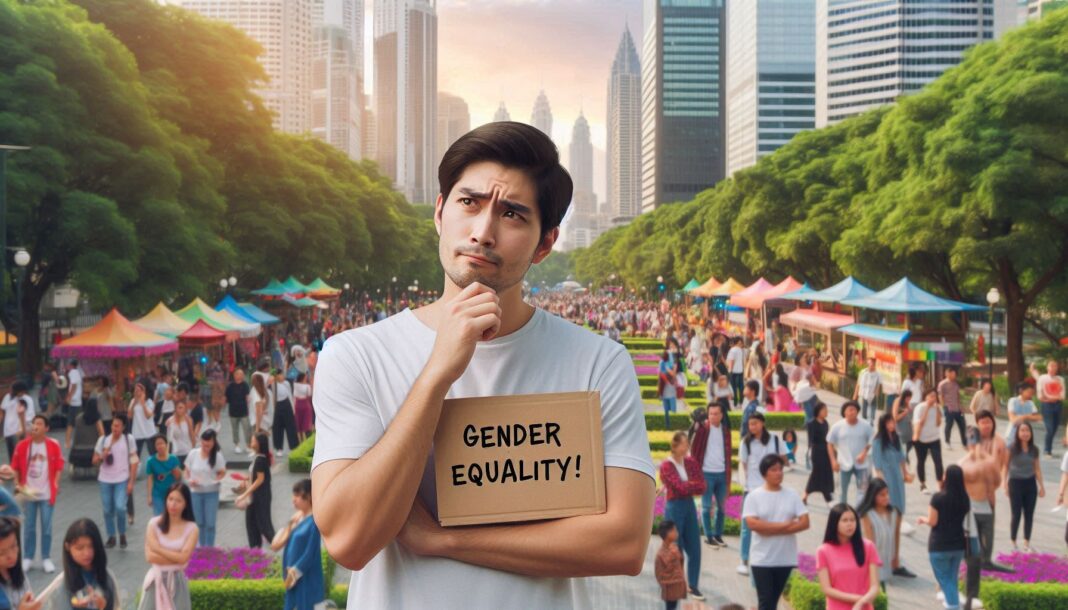International Men’s Day, observed on 19 November, brings attention to men’s often overlooked issues, including mental health, homelessness, abuse and suicide. The day challenges harmful childhood conditioning that discourages emotional expression in boys and questions whether gender equality is being applied ethically, urging a more balanced, compassionate approach that supports all genders.

Every year on 19 November, International Men’s Day arrives quietly, without the marketing blitz or global fanfare attached to many other commemorative dates. Yet its purpose is deeply significant. The day exists to highlight issues that affect men in profound and often unseen ways—abuse, homelessness, mental health struggles, suicide, violence, and the social pressures that shape how men understand themselves from childhood. While conversations around gender equality continue to evolve across the world, International Men’s Day serves as a moment to acknowledge that men, too, navigate emotional, psychological and societal challenges that deserve attention, empathy, and meaningful solutions.
International Men’s Day is framed around six core pillars—themes that advocate for positive male role models, celebrate the contribution of men to society, focus on health and wellbeing, address discrimination, improve gender relations, and create a safer, more equitable world for all. These pillars reflect a simple truth: men’s issues are not isolated concerns but threads woven into the broader fabric of society. When men struggle silently, families, communities and generations are affected. When they are supported, the benefits ripple outward.
Despite this, many men grow up internalising a different narrative entirely—one that discourages openness, emotional vulnerability, and the acknowledgment of pain. The shaping of this narrative often begins early, in the everyday interactions that children absorb without question. Countless boys grow up hearing a familiar admonition from parents or relatives: “You are a boy! Don’t cry!” The message may seem harmless or even well-intentioned, but its impact runs deep. It becomes an instruction that emotion equals weakness, that vulnerability is shameful, and that silence is preferable to seeking help.
Over time, this social conditioning produces men who are adept at suppressing their feelings, often without realising the consequences. Emotional suppression may help a child stop crying on command, but it can evolve into a barrier that prevents adult men from expressing fear, sadness, loneliness or exhaustion—emotions that all humans experience. The implications are visible in global mental health statistics, where men consistently show higher rates of suicide, greater reluctance to seek therapy, and increased vulnerability to substance abuse and self-destructive behaviours. The societal expectation of stoicism does not merely influence personality; it can affect survival.
The pressures are not limited to emotional expression. Many men face the weight of cultural expectations that define masculinity in narrow terms—strength, financial success, resilience, leadership, endurance. These ideals, while not inherently negative, become problematic when they leave no room for failure, softness or change. Men who cannot conform to these standards often experience guilt, inadequacy and isolation, reinforcing the belief that they must face struggles alone. International Men’s Day aims to challenge these rigid definitions, fostering healthier and more inclusive models of masculinity that allow men to grow, learn and seek support without judgement.
At the same time, the conversation around gender equality has grown more prominent and necessary, encouraging greater fairness and equity across social, political and economic spheres. The push for gender equality acknowledges the historical disadvantages faced by women and the structural changes required to build a more balanced world. Yet an important question arises: is gender equality being implemented ethically? True equality requires recognising the challenges faced by all genders, not privileging one narrative at the cost of another. Advocating for men’s wellbeing does not undermine the progress made for women; rather, it strengthens the overall pursuit of fairness by understanding that every group carries unique burdens.
In many societies, however, discussions about men’s issues are often dismissed, overshadowed or viewed as incompatible with feminist progress. This creates a false dichotomy that pits the needs of one gender against another, when in reality, the wellbeing of all genders is interconnected. A father who struggles silently at home affects his children’s emotional development. A man battling homelessness or joblessness impacts family stability. A son who is taught that emotions are unacceptable may grow into a partner who cannot communicate effectively. Recognising these struggles is not a diversion from gender equality—it is an essential part of it.
International Men’s Day offers a platform to explore these intersections honestly. It encourages societies to see men not as monolithic embodiments of strength but as complex individuals shaped by lived experiences, cultural norms and personal vulnerabilities. It asks us to examine how seemingly small phrases—like telling a boy not to cry—can echo through decades. It also invites men to reclaim their emotional identities, to seek help when needed, and to view vulnerability not as a flaw but as a human trait.
Awareness, however, is only the first step. Action requires reshaping social norms, providing resources and creating safe spaces for men to speak openly. Schools, workplaces and families all play critical roles. Teaching emotional literacy to boys and girls alike can dismantle harmful stereotypes before they take root. Encouraging mental health conversations among men—without judgement or ridicule—can reduce the stigma surrounding therapy and support. Community initiatives that address homelessness, unemployment and violence against men can expand the scope of existing support systems. Campaigns that highlight positive male role models can challenge toxic stereotypes and redefine what masculinity can look like in the modern world.
Equally important is ensuring that conversations about gender equality incorporate men’s experiences without diminishing the struggles faced by women. Ethical implementation of gender equality means acknowledging that both genders can face discrimination, barriers and unrealistic expectations. It means addressing the high rates of male suicide with the same urgency applied to issues like the gender pay gap. It means recognising that violence against men, too, is a real and often underreported issue. It means allowing men to express hurt without framing their vulnerability as a threat to women’s rights.
One of the most powerful outcomes of International Men’s Day is the shift it encourages: a move from silence to dialogue, from stigma to understanding, from rigid gender norms to shared humanity. As societies slowly embrace the idea that strength includes softness and courage includes openness, men are given permission to rewrite the narratives handed down to them since childhood. They are allowed to be more than the stereotypes they were raised with. They are allowed to feel.
In many ways, the day is not about celebrating men in isolation but about embracing the idea that healthy men contribute to healthy families, communities and societies. When men have access to emotional support, mental healthcare, safe housing, equitable opportunities and positive representation, everyone benefits. Boys grow into adults who can communicate and connect. Relationships strengthen. Communities thrive.
As International Men’s Day continues to grow globally, its message remains clear: men’s issues matter, not because they overshadow the issues faced by women, but because ignoring them creates gaps that affect everyone. Real gender equality acknowledges both burdens and privileges, both struggles and strengths. It recognises that ethical equality is not a competition but a shared goal—a world where all genders are able to express themselves fully, seek help openly and live without the weight of societal expectations that limit their wellbeing.
On 19 November each year, the world is reminded that men, too, need space to heal, reflect and be seen. And perhaps the most meaningful change begins with undoing the earliest message so many boys receive. Instead of “Don’t cry,” a more compassionate world might say: “It’s okay. You’re human. Feel it. Share it. You don’t have to carry this alone.”
Discover more from Creative Brands
Subscribe to get the latest posts sent to your email.






